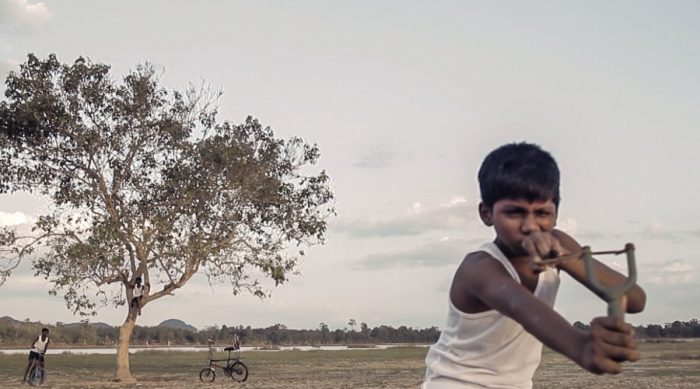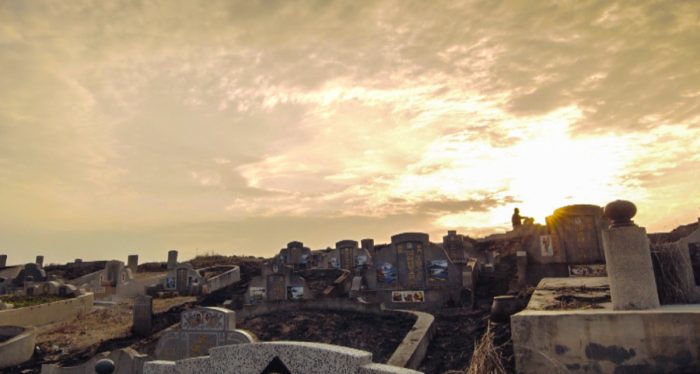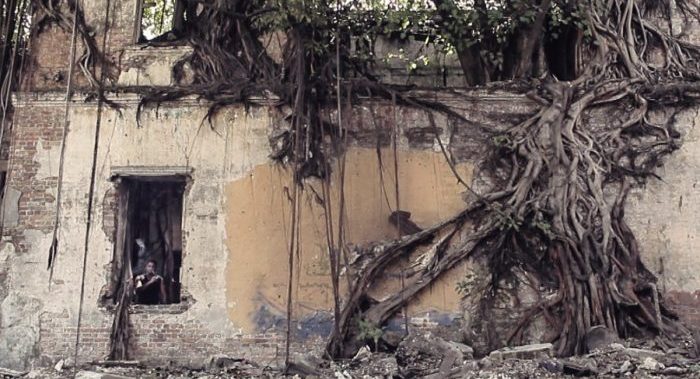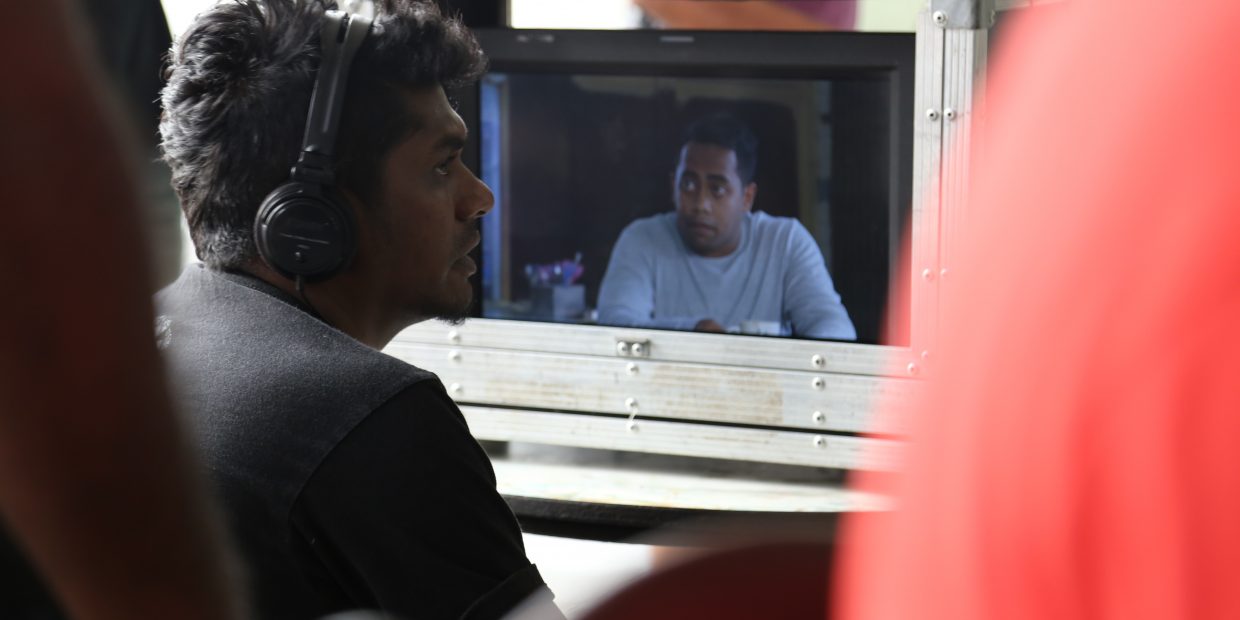Shanjhey Kumar Perumal’s Jagat captures Malaysia’s Tamil community in a critical period of transition. Through the eyes of Appoy, the creative pre-teen child of an immigrant family, we see how social and economic factors catalysed the development of organised crime in the late ‘80s and early ‘90s while Appoy’s traditionalist teachers and parents impose their stern and rigorous authority in an attempt to keep the boy on the straight and narrow path.
This time of unsettlement witnessed first-hand by Perumal himself, whose film is enriched by elements from the writer-director’s own childhood. Speaking to FilmDoo, Perumal reflects upon this difficult era and how things have changed for Tamil families since.
Would you describe Jagat as a political film?
Yes! Indians were brought to Malaysia by the British colonial rule to work in the rubber plantations. We worked in these plantations for 200 years, but after the Malaysian government gained independence they later began introducing a new economic policy which gave much attention to the Malays, the majority. There was in fact no proper transformation plan for the minority people. In the ‘80s, a system called FELDA was introduced, where they give you some land, and when you work on that land, after some years the land belongs to you. This was intended mostly for Malays, and a similar system doesn’t exist for the Indians. Because of this, there were many disaffected Indians in Malaysia.

With the plantations, there was at least a system whereby people live in a community. The young people must respect the elder people, there are temples, they have a playground, they are together. When you remove that system, they lose their identity. They didn’t know how to work, so a lot of people ended up in gangs. Some into drugs, and a small number of people had some success in life. But a very small number came out as doctors, lawyers, etc. A lot of people became lorry drivers because it’s manual work and you do not need to study much. A lot of people end up feeling lost in life because of all these factors. So, that transformation period in the late 80s and early 90s is when a lot of people were searching for their identity. I wanted to mark this important period of change in Jagat.
Do you feel that societal pressures often provoke people like Appoy’s father and teachers to lash out at those on a lower rung to them, like Appoy?
Yes, of course. It’s a pecking order, the hierarchical system of social organization which at the end of the day effects a child who lives at the bottom of the pyramid.
Did you draw much from childhood memories in making this film?
Yes, it’s a semi-autobiography of my own self. I used to live in squatter areas with my family for 2 years. The drug addict uncle character is purely based on own late uncle Bala. I’ve probably lost hope in modern education. Because my father believed education is the only key to success in life, when I finished my degree, I felt empty in life. Paper qualification is not the only solution for betterment of society. People forget about the holistic approach. People forget about the ancient wisdom and also the basic needs of humanity. People are lost in paper education. Of course it’s important for people to have basic qualifications in the modern world, but it shouldn’t be an excuse for us to forget everything.

Socially and culturally, how would you say the place of the Tamil community in Malaysian society has changed since the 1990s?
I think the situation is a lot different. They have a lot of hardships. There are many people that were brought into the place by the British to work in their estates, like 200 years ago. After they gained their independence, there was no proper restoration plan and they were rejected from the industrial development. So these people were left out in the early ‘80s and they did not know what to do. Some of them became workers, like lorry drivers, because it was easy for them and they got a little money, and some became laborers in the industry and some became involved with crime. But now, a lot of people are educated, they have taken their diploma, at least one in each house, it’s common.
But what I want to say is, although we have succeeded in life (some have bought houses and cars), the mind slavery still exists. That’s what I am trying to say with the film. People became successful in life, but some people became extreme in crime. So you can see the two extremes. Sri Lankan Indians were brought by the British government to govern the people. So they became more educated as they had access to higher education. And they became the elite people. The politicians argue that no one gets a bigger start. But you have to see the bigger picture. These people came and had more access to education and they developed more. And these people, 90% percent of them came in the ‘80s and ‘90s and are still considered elite. So the mind stereotypes still exist.

Would you say that the Tamil community has much of a voice in Malaysian cinema today?
I think there is a huge gap between Malay movies, Chinese movies and Tamil ones. For Malay ones, majority films had funding from the ‘80s and the industry has been there since then. And with the Chinese movies, the situation is that a lot of people went to study abroad and when they returned, they started to work with advertising films. When the ad industry was not doing well, a lot of ad industry filmmakers made films and they used the expertise they learned in the ad industry. Besides that, a few Chinese Indie filmmakers really added color into the scenes by making Chinese Malaysian film, which has its own voice.
Regarding the Tamil films, there are many people in the industry who just copy Indian films. Initially the industry practitioners were not academically educated. They have been copying the formula and the format from South India. So there is a huge gap. So that’s why we feel we must make a Tamil movie: One, to express ourselves and communicate with other ethnicities, and two, to balance the situation, because the industry has to exist somewhere, in order for the next generations at least to have something to look at from local cinema, not just copies. But there is not yet a strong example of this effort. We are trying, but I am not sure we can achieve anything.
Do you have any plans yet for your next project?
Yes. Currently I’m writing two stories together. One is in the Malay language and the other one is Tamil.
Watch Jagat on FilmDoo






This blog was… how do I say it? Relevant!! Finally I have found something which
helped me. Kudos!